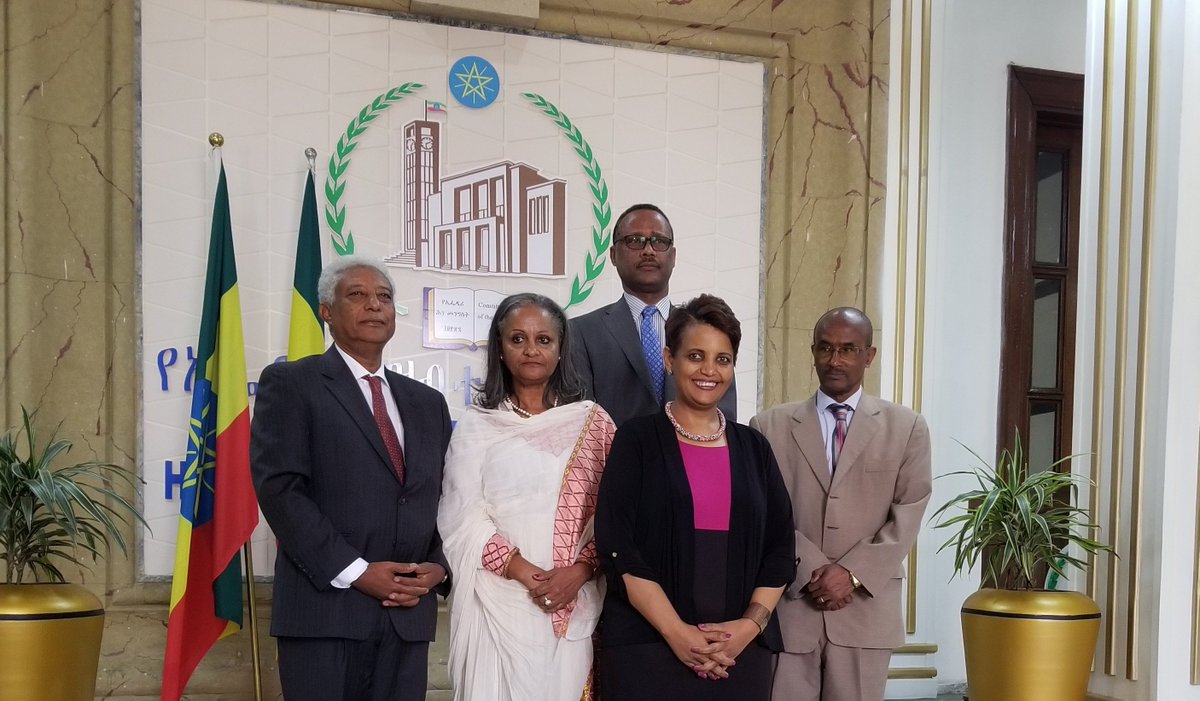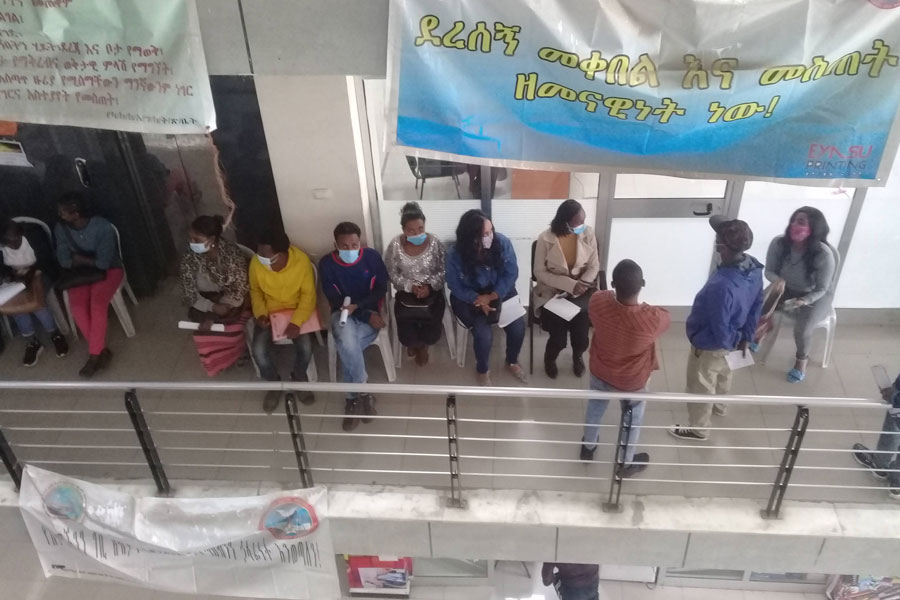
Apr 17 , 2021
By Yehualashet Tamiru
Ethiopia's new proclamation on arbitration is not without its flaws but it is a giant leap for dispute settlement between contracting parties for a business community used to relying on courts for such matters, writes Yehualashet Tamiru Tegegn (yehuala5779@gmail.com), adjunct lecturer at Addis Abeba University and an associate at MTA.
When one considers commercial disputes that arise from breaches of contractual obligation, settlement through courts usually comes first to mind. Unfortunately, the existing Ethiopian court system is highly sluggish, rigid, and expensive. On the contrary, arbitration is speedy, flexible and confidential - saving time and money. Although it has its critics, as any other system, it stands out as one of the most popular means of dispute settlement mechanisms.
Arbitration has now received a boost in Ethiopia with the coming into effect, starting from April 2, 2021, of the proclamation on Arbitration, Conciliation and Work Procedure by parliament. It is highly influenced by the Model Law on International Commercial Arbitration prepared in 2006 by United Nations Commission on International Trade Law. The regime of arbitration law that used to consist of few articles in the Civil and Civil Procedure Codes is now replaced by a more comprehensive and unified regime introduced by this Proclamation.
The Proclamation defines arbitration as an agreement to be implemented to partly or wholly settle future or existing disputes that may arise from contractual or non-contractual legal relations. When the arbitration agreement is made in an instrument separate from another document that defines the obligations of parties, it is in the vocabulary of the law of arbitration, known as a submission agreement. When it is included as a contract provision, it is referred to as an arbitration clause.
The Proclamation embodied modern principles that are considered pillars for the success of arbitration proceedings. One such principle is what is known as Competence-Competence. This principle empowers an arbitration tribunal to entertain an objection regarding its mandate to see a case and give a ruling. This was not the case under the Civil Code where the tribunal is not entitled to decide on disputes relating to its own jurisdiction. This is true also regarding objections relating to the validity of arbitration agreement.
The principle of separability is clearly recognized in the Proclamation, unlike the case with respect to the Civil Code. The principle holds that the arbitration clause in a contract is independent and separate from the other terms of the contract and is capable of execution independently. As a result, the amendment, termination and invalidation of the main contract shall not affect the validity of the arbitration clause.
The principle of the finality of the award is also recognized under the Proclamation. The absence of a substantive review mechanism is one of the striking features of the arbitration process and, generally, an appeal on the merit of the case is not permitted. This is because of two reasons. Primarily, there is a fundamental difference between the court and tribunal in resolving a dispute. The court focuses on the public purpose rather than mere dispute settlement. Under the Civil Code, an appeal was permitted when the award is inconsistent, uncertain, or ambiguous or is on its face wrong in a matter of law or fact.
The Proclamation prohibits appeal unless the contracting parties agree otherwise. The most interesting change in this regard is that the contracting parties can oust the jurisdiction of the Cassation Division of the Federal Supreme Court by explicit agreement. The Cassation Division of the Federal Supreme Court has a long-held position that it can review a final arbitration award on grounds of error of law even if the parties provide for a finality clause in their agreement. A number of arbitration awards have been reviewed by the court on this ground over the years. The case of ‘National Mineral Corp. Pvt. Ltd. Co. v. Danni Drilling Pvt. Ltd. Co.’ is one instance worth noting here in this connection. The Cassation Division of Federal Supreme Court case held that the mere existence of agreement not to appeal to it will not prevent it from entertaining the case if the Tribunal's decision has a fundamental error of law. This may also be viewed in light of the Ethiopian Constitution where the Federal Supreme Court is granted the power of Cassation over any final decision containing a basic error of law. It will be interesting to see how the court will interpret the rights of the contracting parties to oust its jurisdiction vis-à-vis the power granted to it by the Constitution.
The principle of non-interference by courts in arbitration proceedings is also explicitly recognized in the Proclamation. There is a competing and conflicting interest in maintaining the balance between excessive and necessary judicial intervention in the arbitration proceeding in most countries. However, the contemporary trend is that courts should be as little involved as possible.
Possibilities of too much interference were built in the Civil Code. The Proclamation, on the other hand, clearly prohibits intervention by courts and limits their power only to the provision of assistance and supervision to arbitration proceedings. Upon certain parameters clearly prescribed in arbitration laws, the courts may intervene in matters such as the appointment, challenge, and termination of an arbitrator; jurisdiction of the arbitral tribunal and recognition of the arbitration agreement. The same approach is adopted in the Proclamation.
It is a generally accepted principle that the matter of arbitrability of any case concerns public policy. Each state may decide under its own public policy considerations as to which types of disputes can be excluded from settlement by arbitration. The Proclamation considers the following disputes as non-arbitrable: divorce, adoption, guardianship, tutorship, succession, criminal and tax, judgment on bankruptcy, decisions on the dissolution of business organization, land cases, administrative contract, trade, competitional and consumer protection cases and administrative disputes.
The Proclamation encourages the establishment of both private and public-owned arbitration centers. The independence of state-owned arbitration centers may be questioned if they rely too much on government for their funding and operations.
Taken as a whole, the proclamation is a step ahead catering to the need of the private sector to resolve disputes expeditiously. When seen together with Ethiopia’s recent ratification of and accession to the New York Convention on Recognition and Enforcement of Foreign Arbitral Award, the enactment of the Proclamation demonstrates the government’s intention and effort to change the business ecosystem and make more investor friendly.
PUBLISHED ON
Apr 17,2021 [ VOL
22 , NO
1094]

Fortune News | Jan 30,2021

Radar | Dec 25,2018

Commentaries | Feb 27,2021

Election 2021 coverage | Jan 13,2020

Verbatim | Apr 26,2025

Agenda | Jul 03,2021

My Opinion | Aug 18,2024

Fortune News | May 11,2019

Fortune News | May 13,2023

Commentaries | May 08,2021

Photo Gallery | 176556 Views | May 06,2019

Photo Gallery | 166767 Views | Apr 26,2019

Photo Gallery | 157301 Views | Oct 06,2021

My Opinion | 136921 Views | Aug 14,2021

Dec 22 , 2024 . By TIZITA SHEWAFERAW
Charged with transforming colossal state-owned enterprises into modern and competitiv...

Aug 18 , 2024 . By AKSAH ITALO
Although predictable Yonas Zerihun's job in the ride-hailing service is not immune to...

Jul 28 , 2024 . By TIZITA SHEWAFERAW
Unhabitual, perhaps too many, Samuel Gebreyohannes, 38, used to occasionally enjoy a couple of beers at breakfast. However, he recently swit...

Jul 13 , 2024 . By AKSAH ITALO
Investors who rely on tractors, trucks, and field vehicles for commuting, transporting commodities, and f...

Oct 18 , 2025
The political establishment, notably the ruling party and its top brass, has become p...

Oct 11 , 2025
Ladislas Farago, a roving Associated Press (AP) correspondent, arrived in Ethiopia in...

Oct 4 , 2025
Eyob Tekalegn (PhD) had been in the Governor's chair for only weeks when, on Septembe...

Sep 27 , 2025
Four years into an experiment with “shock therapy” in education, the national moo...

Oct 18 , 2025 . By NAHOM AYELE
In a sweeping reform that upends nearly a decade of uniform health insurance contribu...

A bill that could transform the nutritional state sits in a limbo, even as the countr...

Oct 18 , 2025 . By SURAFEL MULUGETA
A long-planned directive to curb carbon emissions from fossil-fuel-powered vehicles h...

Oct 18 , 2025 . By BEZAWIT HULUAGER
Transaction advisors working with companies that hold over a quarter of a billion Bir...